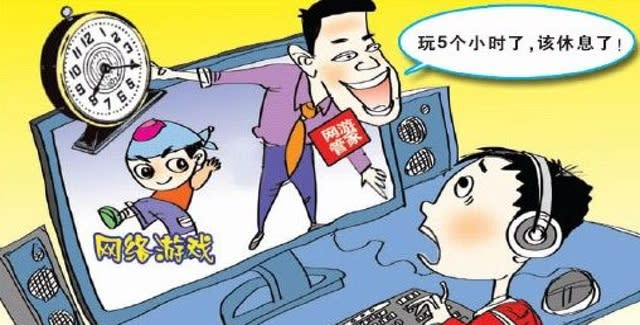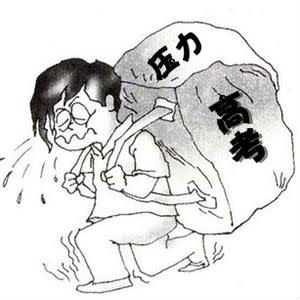Education and addiction in China
Gaming addiction has become common concern throughout Asia over the last few years. Parents, teachers, and even governments are working on a solution, but what if they are all looking in the wrong direction? Is it possible gaming addiction is a symptom rather than the problem itself?
For the last four years, I have been working as a teacher in China. I have worked with students of all ages and varied backgrounds, and what I have seen has led me to two conclusions. Firstly, that gaming addiction is both real and dangerous. Secondly, that China’s broken education system is the heart of this problem in the country.
(See: Report finds China’s anti-gaming-addiction systems are not working)
China’s education assault
Many people say that our school days are the best days of our lives and these people are all idiots. School is hell for almost everyone. For those at the top, it’s a Machiavellian power struggle; for those at the bottom, it’s constant abuse. Everyone knows that “school sucks”, and no one knows it more than students in China.
Let me say this unequivocally: China’s education system is brutal. Students work for up to twelve hours a day, and are given multiple hours of homework a night. Their weekends and holidays are filled with extra classes in private schools and from tutors. Check out these students talking about their work loads:
It’s exhausting and it’s damaging. Students have little time for socializing and almost no time for private hobbies. When I asked my middle and high school students what their favorite hobby was, the number one answer was “sleep.” Number two was computer games.
To show you how insane this gets, one school in Hubei had students hooked up to IVs because they were afraid of students getting sick from studying too much.
The second part of Chinese education involves competition and pressure. Test scores are insanely important and students often base their social status and self-confidence on their results. One messed up exam can be disastrous. I have personally seen bursts of hysteria from otherwise rational students who fail to get top marks.
I once even had a university student crying in my office because she got only 93 per cent in the class. The internet is full of other examples from self-harm to outright suicide over exam scores.
(See: Chinese mother, son presumed drowned after argument over League of Legends)
Home is no escape from this pressure. Students are often harassed about exam scores by relatives and pushed to forsake all other activities except studying. When I asked one friend about this treatment, he answered that turning a piece of coal into a diamond requires pressure. Lots of pressure.
This is the life of the majority of students in China, and it’s not difficult to see where computer games fit into this.
The draw of gaming
Lots of people spend time explaining why gaming is so popular with youth in China. These reasons roughly divide into the following three parts: escapism, fulfilment, and community.
People spend a lot of time explaining how computer games use the desires of gamers to manipulate them into addiction.
(See: Chinese anti-game activist Tao Hongkai attacks League of Legends players)
In my opinion, people spend way too much time analysing why Chinese gamers play games, because the answer is the exact same as any other group of gamers from any other country. We play games because it’s fun. There’s nothing inherently Chinese about liking games too much, in the same way there is no inherent reason for obesity in America or alcoholism in Scotland.
Tao Ran, the man behind Beijing’s infamous gaming addiction rehab center, focuses on this and makes the parents of those in his care attend lectures about why students are gaming in excess.
Unlike many other academics in this field, Tao Ran does not blame the games directly. He acknowledges, and forces parents to acknowledge the reasons these situations have arisen. Social isolation, over-work, and pressure are all integral parts of the problem.
However Tao’s treatment remains pretty draconian, using medication and strict militaristic rules to “cure” those of their addiction. You can find out more about Tao and his methods in this video from the New York Times and the yet to be released documentary, Web Junkie.
(See: Made in China: one company’s struggle to do what they love)
As was expected, most of Tao’s patients are male students whose parents’ chief concern is their inability to study. Most of the parents interviewed focus on their child’s inability to study in a correct fashion. Tao himself focuses on the fact that after his intense course, students can return to their studies. Some of his methods may be good, but Tao’s commitment to return students to the life they fled may be counterproductive.
One of the things that few people have mentioned is the rebellious aspect of gaming. Due to people like Tao Hongkai and their relentless scare-mongering, parents in China are as worried about gaming as my parents were about smoking. And you know what, I smoked to prove a point.
I remember smoking with friends, hating it, and only finishing the cigarettes because I knew how much it would annoy my mother. Many of my students expressed similar sentiments. They game because they know that it annoys their parents and teachers.
A student struggling with the pressure of examinations
In one middle school I worked at, students were banned from playing computer games; not only on the school premises, but also everywhere else. The school even enlisted the help of parents to keep students from “wasting time” on games when they could be studying.
(See: Gaming Madness in China: Beatings, Beatings, and a Little Peeing in Internet Cafes)
The result was a game of cat and mouse that was ridiculous. As a teacher I couldn’t help but laugh as boys posted lookouts at the bathroom so they could play Plants vs. Zombies in safety. Several of these students were accused of being addicted to games, but they weren’t. They were just being kids, doing their version of smoking behind the bike sheds.
How to fix it
There is no quick fix for gaming addiction because gaming addiction is not the problem. China’s youth are suffering in silence under the yoke of an outdated system that has ridiculously high expectations of its young people. The standardised exam system leaves student traumatised. In several cases, I had students who showed sign of post traumatic stress disorder: having nightmares, physical pains, and experiencing intense mood swings when the anniversary of the College Entrance Exams came along.
Parents waiting for their children after the college entrance exam
Gaming provides a relief for many, and it is unsurprising that for a small number of those seeking relief, the solace they find is greater than the desire to continue their education. And honestly, who can blame them? Most of China’s gaming addicts are nothing more than the collateral damage of an outdated education system that no one wants to improve.
The post Education and addiction in China appeared first on Games in Asia.







